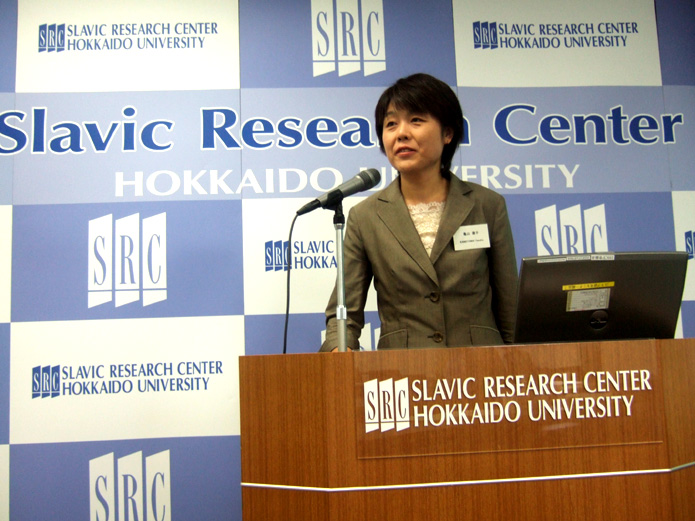|
The SRC international symposium
“Elusive Balance:
Regional Powers and the Search for Sustainable
Development”
was held on July 9-10, 2009
July
16, 2009, by Shinichiro Tabata
The first
international symposium for the scientific project, “Comparative
Research on Major Regional Powers in Eurasia,” was held at the Slavic
Research Center, Hokkaido University, on July 9-10. This project is
funded by a five-year grant-in-aid for scientific research on
innovative areas, supported by the Ministry of Education and Science of
Japan. The title of the symposium was “Elusive Balance: Regional Powers
and the Search for Sustainable Development.” There were five sessions
which compared the economies of Russia, China and India from various
viewpoints, including macroeconomics, energy, environment, poverty and
inequality, and historical developments. There was also an additional
session in which scholars from South Asian countries (India, Pakistan
and Afghanistan) discussed border issues.
The above mentioned project included six research groups, one of which
examined the possibility of sustainable economic development for the
regional powers, headed by Professor Akira Uegaki of Seinan Gakuin
University. It was this research group that organized this symposium.
Four researchers of this group presented papers. Although this project
started only last December, these papers gave us a preliminary result
of the comparison of the regional powers, especially in the studies of
macroeconomics and poverty and inequality. In addition, from sessions
on energy and the environment, we learned the importance of these
issues for the socio-economic development of these regional powers, and
also the importance of these regional powers for finding a solution to
these global issues.
In the last session, economic developments of regional powers for the
last several centuries were compared both by macroeconomic and
inequality indicators. Two presenters attempted to provide an
alternative picture and explanations for the catch-up of some East
Asian countries from the state of the “Great Diversion” between the
Western and developing countries.
Sixteen papers were presented altogether. From abroad ten scholars were
invited, including five from South Asia (India, Pakistan and
Afghanistan), two from East Asia (China and Hong Kong) and one scholar
each from Russia, Finland and the UK. Probably, it was the first time
in the history of the SRC that we invited only one scholar from the
Slavic Eurasian area for an international symposium. Papers presented
at the symposium will be published in various publications of the SRC
and other academic journals.
This was the first symposium to be held at the SRC building after its
renovation. A television set located in the reception area next to the
conference room allowed participants to monitor sessions. Participants
enjoyed conversations in a broad space of the reception area during
coffee breaks.

[index]
|

